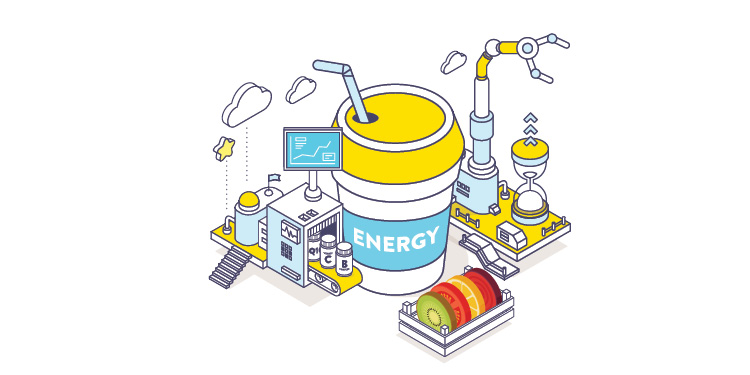


Sign-up for {N}power to get exclusive discounts, newsletters, members-only features, and more!
 Denver - Design District - Alameda and Broadway
Denver - Design District - Alameda and Broadway
368 S Broadway
Denver, CO 80209
United States
 Preferred Store:
Select a Store
Preferred Store:
Select a Store


Run down, exhausted, bone-tired, drained, worn out, zonked. However you choose to say it, you’ve likely experienced it. Whether it hits you mid-morning, sending you for your third or fourth cup of coffee; mid-afternoon when all you want to do is curl up under your desk for a cat nap; or in the evening, when “Netflix and chill” really means “Netflix and snooze,” fatigue is a most unwelcome guest. But somewhere along the way, fatigue has become the norm for most of us, and we continue to schlep through each day either feeling perpetually tired or artificially energized with caffeine. It doesn’t have to be this way! Read on to discover how to harness (and maintain) the energy you need to power through your day.
Our bodies need specific vitamins and minerals to make energy at the cellular level—where all energy begins! Marginal deficiencies in these micronutrients will have a ripple effect through the body—even small insufficiencies in some of these will cause a lack of energy. Indeed, one of the first physical symptoms of a deficiency in many of these nutrients is fatigue. But don’t think of them as a direct energy hit—these micronutrients work long term to create and sustain energy, and it can take time to build your reserves, especially if you have suboptimal levels.
The B complex vitamins—including thiamine, riboflavin, niacin, pyridoxine, B12, biotin, pantothenic acid, folate, choline, and inositol—are all involved in turning food into energy, either acting directly, or indirectly as cofactors. These vitamins help convert carbohydrates, fats, and protein into energy and are necessary for the biochemical reactions that create energy in the mitochondria—the tiny energy factories found in our cells, and where all energy originates. Without optimal levels of the B vitamins, your body cannot effectively make energy. Try a daily high-potency B-complex supplement.
One of the first signs of a vitamin C deficiency is fatigue, or “lassitude,” and irritability. Vitamin C is essential for the synthesis of carnitine, which transport fat into the mitochondria to be burned for energy. Studies have found that both supplemental and intravenous vitamin C reduces fatigue in both obese individuals and in healthy adults. If your fatigue is related to stress, vitamin C can be extra helpful—vitamin C helps modulate levels of the stress hormone cortisol. Try: 500–1,000 mg daily.
This vitamin-like substance is directly involved in the series of biochemical reactions that create energy in the mitochondria and has been used to treat genetic defects in energy production that result in extreme fatigue. It is also commonly used to treat fatigue caused by statin drugs, which happen to blockthe body’s natural production of CoQ10. Multiple studies have confirmed that it boosts energy levels. Try: 100–200 mg CoQ10 daily.
You can’t expect to feel energized through the day when you start with a shaky foundation. These are simple tips that you have likely heard before, but when you integrate these healthy habits into your day, they go a long way in building and sustaining energy:
Make your first drink of the day water with a squeeze of lemon or a teaspoon or two of apple cider vinegar, and continue drinking water throughout the day. Staying hydrated is such a simple concept, but is an important component in maintaining energy. And fear not, you can still have your cup of jo—for an energizing boost, try hacking it with grassfed butter and coconut oil! You can find the recipe at naturalgrocers.com.
It’s pretty common knowledge these days that what you eat affects how youfeel in a big way, so it stands to reason that a bagel or cold cereal, or skipping breakfast altogether, is not the best way to start your day. In fact, you’re setting yourself up for a major crash and burn on the blood sugar roller-coaster. Jumpstart your day with protein, healthy fats, and non-starchy veggies. If you don’t have time to cook in the morning, whip up a protein shake or a green smoothie.
Move your body! Yes, it can be hard to find the motivation to move when you are weighed down with fatigue. But guess what? That’s the best time to get up and move! Stand up and stretch, go for a quick walk, or do a few jumping jacks. I promise, you’ll feel immediately energized.
Try a green drink! Powdered greens such as spirulina, chlorella, and wheat grass are concentrated sources of chlorophyll, the light-harvesting molecule found in plants that give them energy to grow. It has a chemical structure similar to hemoglobin, the protein in red blood cells that carries oxygen through our bodies (including our brains), and has been studied as far back as 1936 in its relationship to regenerating red blood cells. Recent research has even found that the mitochondria in mammals fed chlorophyll-rich diets are able to convert sunlight into energy! The study showed that chlorophyll metabolites accumulate in mammalian tissues and, when exposed to sunlight, energy production increased in the mitochondria. In addition to chlorophyll, green drinks are chock full of antioxidants, phytonutrients, and enzymes.



Sign-up for {N}power to get exclusive discounts, newsletters, members-only features, and more!
